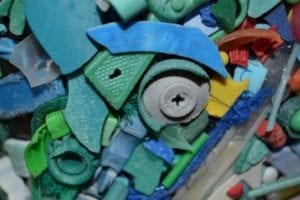“The marine environment has many challenges. Global warming is visible within this sphere and its impact is slowly being understood. Overfishing, acidification, chemical pollution with the added pollution of marine debris of which the main product is plastic is compounding the negative effect that humans have on the environment.”
This was Deputy Minister of Environmental Affairs, Rejoice Mabudafhasi’s main message during her speech at the African Summit on Marine Debris at SANBI Kirstenbosch, Cape Town on 6 June 2013
According to Mabudafhasi, marine debris is not just an unsightly issue thatcan have a negative impact on tourism and human health, but it also is responsible for deaths of a myriad of the creatures that inhabit the marine environment. “I am reminded again that 80 percent of all plastic found in the sea has its origins on land through littering and poor waste management so this negative impact on the environment can be reduced and even stopped,” said Mabudafhasi.
The Summit – entitled “African lessons to inspire local actions” – took place from 6 to 8 June 2013 and focused specifically on the issue of marine debris around the African continent. Plastics|SA, the umbrella body representing the South African plastics industry, joined hands with the Department of Environmental Affairs, the South African National Biodiversity Institute and the United Nations Environment Programme in organizing the conference which brought together marine debris researchers, natural resource managers, policy makers, industry representatives and the non-governmental community.
According to Douw Steyn, Plastics|SA Director of Sustainability, marine debris is a historical problem that continues to grow. “The world’s oceans and waterways are constantly polluted with a wide variety of marine debris ranging from cans and plastic bags to derelict fishing gear and abandoned vessels. Many animals, such as sea turtles, seabirds, and marine mammals, have been known to ingest and get entangled in marine debris, which may lead to loss of nutrition, internal injury, intestinal blockage, starvation, and even death,” Steyn says.
However, marine debris is an international concern not only because it washes up on beaches and shorelines worldwide, but also because debris can be transferred from one country serving as a vector for alien animals and plants to another via ocean currents. “International cooperation is needed to create public awareness while developing ways to decrease the amount of debris in oceans around the globe,” Steyn explains.

Deputy Minister of Environmental Affairs, Rejoice Mabudafhasi speaking.

Douw Steyn, Plastics|SA Director of Sustainability speaking.









